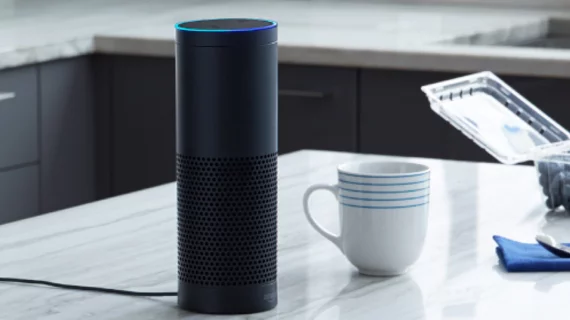Cedars-Sinai launches Alexa pilot in 100 patient rooms
Cedars-Sinai, a non-profit hospital based in California, is launching a pilot program to outfit 100 patient rooms with a platform powered by Amazon’s voice technology, Alexa. The platform, known as Aiva, will enable patients to request some tasks to be performed by the voice assistant, such as turning on the television, changing the channel and making requests to nurses.
The pilot reflects the rising use of voice technology across industries. Patients in hospitals most frequently request voice technology to make environmental controls, such as playing music.
The platform could free up nurses to be more focused on delivering patient care. Patient requests are routed to an appropriate caregiver’s mobile phone. For example, a patient’s requests for help using the bathroom would be routed to a clinical partner, and a pain medicine request would reach a registered nurse.
“Whereas previously nurses were frequently asked to help with the in-room television, Alexa does that job for us, allowing nurses to focus on providing the highest level of patient care," Golda Morales, assistant nurse manager of general surgery at Cedars-Sinai, said in a statement.
If requests aren’t answered quickly, the platform sends it up the chain of command, according to the announcement.
Cedars-Sinai has made other investments to bring its hospital rooms into the 21st century, including using the MyChart Bedside app and an iPad project that modernizes patient communication.

